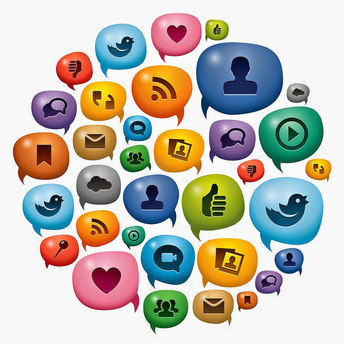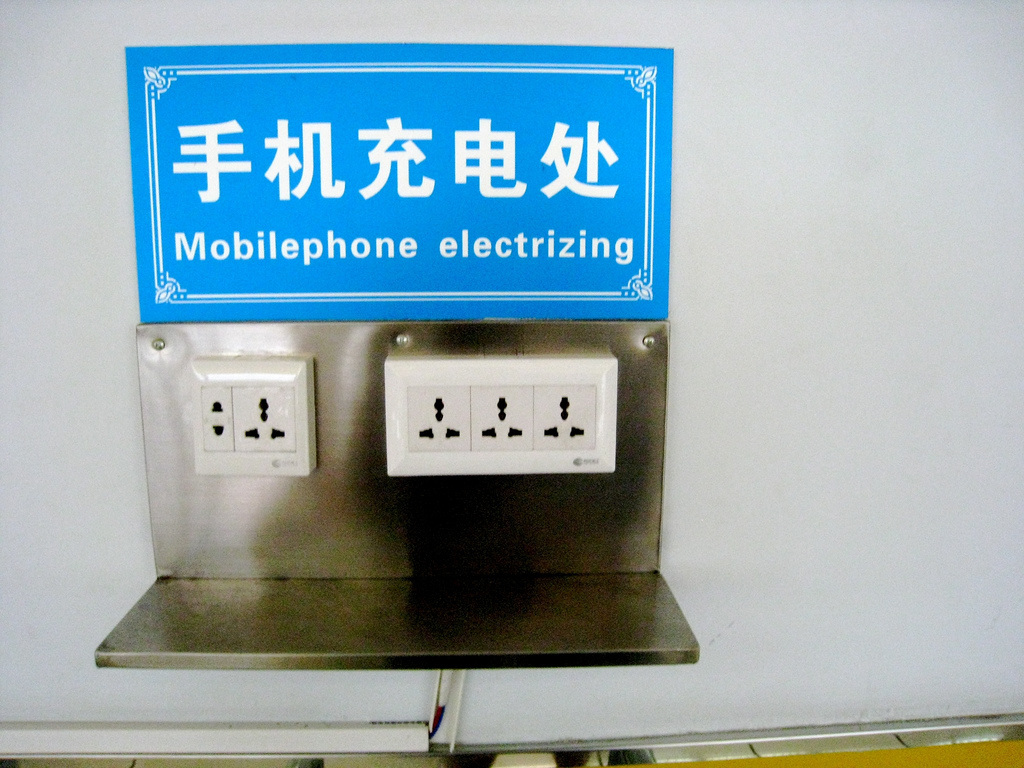|
Not too long ago, we provided interpretation services for a major event that took place at several venues across Boston and required interpretation in more than one language. While this kind of event is a common occurrence for Red & Blue, we recognize that many event planners have never used interpreters at their events. Research shows that international participation at conferences is growing, making it more likely that you will need interpreters in order to provide a superior experience for your attendees. Here are four tips that will make your event go more smoothly.
1. Contact a localization agency early in the process. Depending on the subject matter of your conference you may need to book your interpreters far ahead of your conference. For example, if you need an interpreter who is familiar with medical device terminology, biotech jargon, or anthropological terms for the Mayan civilization, your localization agency will need some time to find the perfect people. Give your agency as much heads up as possible so that they can find native speakers with a background in your field. 2. Provide speech materials whenever possible. Often, conference organizers request that speakers provide their PowerPoint decks ahead of time so that they can be loaded into the system. Be sure to provide copies of the decks to your interpreters and, if at all possible, any other background information or speaker notes that you can get your hands on. The more preparation your interpreters can do prior to the event, the greater the accuracy of the interpretation, especially if you are using simultaneous interpretation. 3. Overestimate. Sometimes clients minimize their interpretation needs in order to save costs. However, what we often find is that at the last minute the number of attendees that need wireless headsets increases as participants realize that the option is available to them. Also, event planners often forget or underestimate the need for interpreters at break-out sessions. Adding interpreters and equipment at the last minute can increase costs and will very likely increase stress. We advise you to think carefully in advance about all the sessions where you may need interpreters either for speakers, or to enable the full participation of attendees. It's a lot easier to scale back than to add in, although high-quality providers should be able to rise to the occasion. 4. Double check the languages. This may seem like a no brainer, but it is critical that you check with your attendees to ensure you're providing interpreters in the right languages. Just this week the Swedish government landed in the papers because they provided Romany language interpreters to Romanian immigrants. Romany is a completely different language than Romanian, and none of the immigrants could understand it. The last thing you want to do is promise a high level of service and then fail on something easily avoidable. With the right level of planning, you can make your event stand out as a must-go for international participants. Expand your audience and your revenue by providing excellent service for your attendees. Build in comprehensive interpretation services from your earliest planning stages, provide your interpreters with as much background information as possible, and plan carefully for when and where you will need interpreter services. Your reward will be great customer feedback and the opportunity for more international growth.
3 Comments
Social media can make or break a brand. Unlike stuffy corporate brochures, or expensive, well-planned commercials, Tweets, Facebook posts, and Instagrams can be quick one-offs, often hastily done when an idea strikes. This can be great, or it can be disastrous. Often the company uses social media to show a sense of humor, poke fun at itself, or highlight a charity that it supports. This can be a great way to build a brand following. However, because social media is tapped in to local culture, relies on less formal speech, and plays off of local goings-on, it's critical that companies give extra thought to how they use social media in other languages and cultures.
One difficulty with social media, is that it does not work to translate each Tweet into Spanish and hope that your customers in Madrid will catch the references. Depending on your product, you may even need to create social media posts in several languages just for your local U.S.-based market. In any case, you need to have someone who is current with the local culture so that your message is relevant to what's going on and the humor is appropriate. When crossing cultural divides it can be easy to offend. Having a local person involved in your social media strategy will help you avoid those pitfalls. Additionally, pictures and videos are key to getting your message widely shared. The more relevant your pictures, the more they will resonate with your target audience. This means that you may not want to use a picture of a New York city street if you're trying to reach a Paris market. Again, by having someone familiar with the local market work with you on your social media strategy, you can identify images that spark understanding or help convey the humorous message you're trying to get across. Don't forget to localize your website too. Research shows that people are more likely to buy from companies whose websites have been translated into their languages. There's no point in building a solid global social media following if they tune-out when they hit your English language-only website. Take the time, do it right, and the sales, loyalty, and buzz will follow. Last week we talked about how using your cousin to translate for you is not a good way to cut costs. This week, there was an article in MinnPost that talked about the often dire consequences of using a bilingual person for medical translation, rather than a professional, certified translator.
In one case, according to the article, a translator told the medical team that the patient was intoxicated when he was actually nauseous. The result was that his brain aneurysm was not properly treated and the patient wound up paralyzed. In fact, when amateur translators make medical translation mistakes, those mistakes are potentially dangerous 77% of the time. Even professional interpreters make mistakes, which underlines the importance of hiring interpreters who are certified in medical terminology. Many hospitals provide access to interpreters for patients who request them, and there are many translation agencies that provide medical interpreters who can go with you to an appointment or provide over the phone service. By taking better advantage of these services, we can greatly improve patient outcomes. Similarly, the business world can and should learn from the medical community. While less likely to have life or death consequences, improper translation and interpretation can have huge negative consequences for the company's reputation and its bottom line, especially when contracts are involved. Getting specific business terms correct reduces ambiguity and helps to ensure better relationships moving forward. Sometimes this may mean that specific terms not be translated, but that the term from each language be included in the text so that there is no chance for ambiguity or misinterpretation. As we've said in other posts, you work too hard to create a superior product or service to then lose credibility in the marketplace through poor translation, or to get bogged down in a dispute with a vendor over a poorly translated contract. Build translation into your cost structure from the beginning, hire professional, certified translators who have experience in your industry, and be confident in how your image will be perceived by others. We often hear of people trying to cut their localization costs by hiring their brother-in-law's sister's cousin who used to live in Mexico to translate their company's product literature into Spanish. While this is a cheap way to go, it's not going to get the job done right. Here are 4 better ways to reduce your translation costs and get an excellent final product.
1. Hire a certified, professional, native speaker. I hear you saying, wait a minute, that has to be expensive! Actually, hiring someone who can do the job right the first time around will be less expensive in the end then hiring someone who doesn't know what they are doing. A professional with background knowledge of your industry won't have to peruse a dictionary in order to get your localization done. Plus, you won't be spending time and money on re-writes to correct their errors like you would with that cousin. 2. If it's a long document, make sure your localization agency creates a glossary of terms. Consistency is key with localization. By creating a glossary of frequently used terms, trademarked names that shouldn't be translated, and industry lingo, you and your translation agency can ensure that the final product is consistent throughout the document. If you plan to have the document translated into multiple languages, this glossary will really help cut down costs. 3. Give yourself the gift of time. One of the most avoidable ways people run up localization costs is by requesting on a tight turnaround time. Plan in advance for your translation and build the time into your production schedule. 4. Finish the document before you hand it to the localization agency. Every time you need to make a change, it costs you more, especially if your document needs to be localized into multiple languages. And if you do decide to change the source document, keep a detailed record of all the changes you make so that the localization company can easily see where they need to amend their versions. Many articles have come out recently showing that the language, or languages, we speak may affect how we think and how we interact with others. AAAS recently reported on a study that showed that English speaking people tend to talk about actions, while German speakers talk about the beginning, middle, and ends of events. Furthermore, German speakers seem to focus on the "outcomes of people's actions," whereas English speakers focus on what the person is doing in the moment. When researchers studied bilingual speakers, they showed that the person viewed actions differently, depending on which of his languages he was speaking, seemingly demonstrating that language does affect perception.
The AAAS article also cites that different languages seem to lend themselves to focusing different attention on objects, so that Japanese group by material not shape and "Koreans focus on how tightly objects fit together." An article in Harvard Business Review discusses how people plan for the future differently based in part on how the language they speak deals with present and future tense constructions. Those whose languages have similar ways of constructing present and future tenses do more planning for the future than those who speak languages that have different structures for present and future tenses. Other researchers say that some of these findings may be evidence of cultural differences, as opposed to language differences. Whether language differences affect cultural outlook or vice versa is really a chicken or the egg question. And the answer may not really matter. What does matter is for us to realize that people who speak a different language may also approach problem solving differently or place emphasis on different aspects of what they see. Such differences could be really helpful if harnessed correctly in group situations. Looking at problems through different view points and examining issues with different ideas of what is critically important and what is not important leads to productive discussions and better and more creative problem solving. |
Author
Archives
March 2024
Categories
All
|
Photos from : : Ys [waiz] : :, bjahind, fabola, MattysFlicks, @sage_solar, LoS, Traducción e Interpretación, Kyle Taylor, Dream It. Do It., _gee_, keepitsurreal, One Way Stock, Airviewsphotos, GotCredit, efile989, Benoit cars, ** RCB **, stephiesal853, Francisco Anzola, Highways England, ITU Pictures, VIPevent, leoplus, Karsten Bitter, Jolante, jobstop11, Nguyen Vu Hung (vuhung), jurvetson, mikefats, YooSan, sandrafdzh, roland, mikecogh, y entonces, Donald Lee Pardue, Gatorgoon, daniel0685, BÜNDNIS 90/DIE GRÜNEN, rick, {Guerrilla Futures | Jason Tester}, mikecogh, markyharky, amslerPIX, jo.sau, IAEA Imagebank, lisa-skorpion, Toronto Public Library Special Collections, Wootang01






 RSS Feed
RSS Feed
